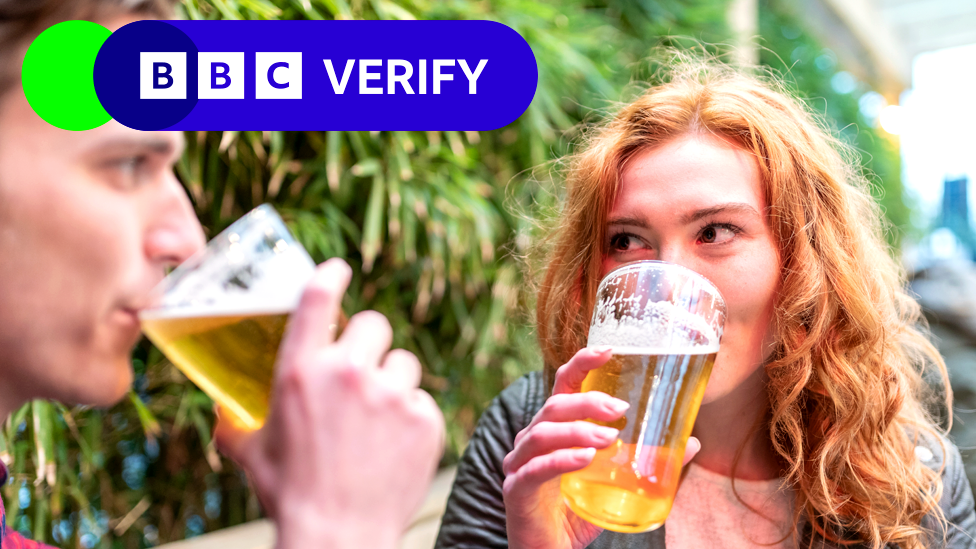Budget in Oxfordshire: VAT threshold increase 'only a small nod'
- Published
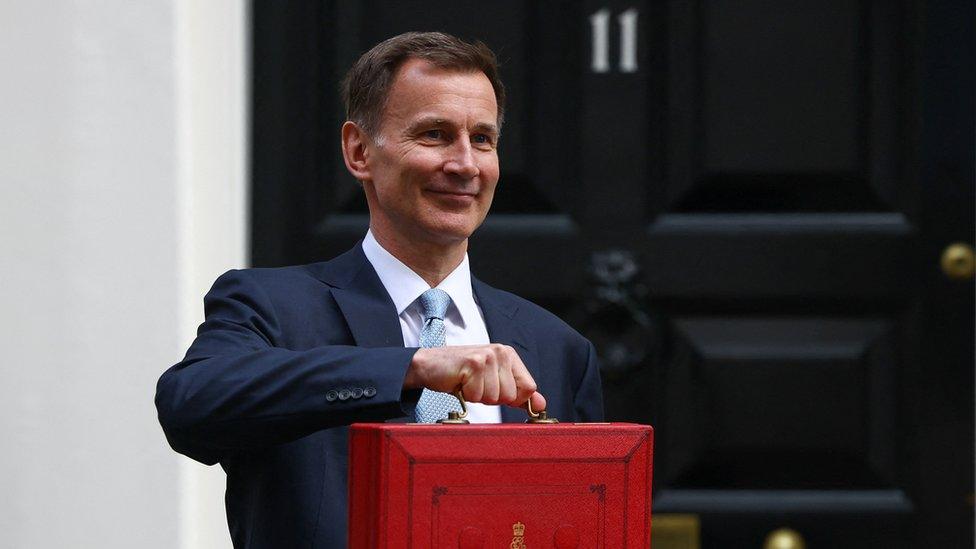
Jeremy Hunt said "tens of thousands of businesses" would get out of paying VAT altogether
The chancellor's decision to increase the threshold for VAT registration from £85,000 to £90,000 for small businesses was "not a grand gesture", a restaurant owner has said.
Jeremy Hunt made the announcement at this year's Budget.
The government says the investment will take about 28,000 of businesses out of paying VAT, though many had hoped it would go as far as £100,000.
Julie Jampa described it as "just a very small nod".
Ms Jampa, who runs a Tibetan restaurant in Oxford with her husband, and whose hot food is subject to a VAT rate of 20%, was hoping for tax "more in line with the reality of how small businesses trade".
She told the BBC: "There are so many restaurants closing.
"That 20%... is for many businesses their profit margin, and I think there needs to be recognition that small businesses can't handle that kind of a hit."
She said the cost of utilities and raw ingredients was also continuing to rise, and "it pains us to have to bring our prices up in order to make ends meet".
'Businesses struggling'
Dharshini David, the BBC's chief economics correspondent, said the threshold increase "eases one form of fiscal drag and increases incentives for work".
But she added: "It had been frozen for seven years; the rise of £5,000 doesn't compensate entirely for that."
The change comes in from 1 April.
"This will bring tens of thousands of businesses out of paying VAT altogether and encourage many more to invest and grow," Mr Hunt claimed.
But Ms Jampa said: "It isn't going to make a significant difference to the vast majority of small and medium-sized businesses struggling with various problems, including this fairly low threshold of VAT.
"We were also hoping for the government to look at potentially introducing a sliding scale after businesses hit that threshold that can ease small businesses into a more comfortable period of growth.
"We haven't seen that so that's pretty disappointing."
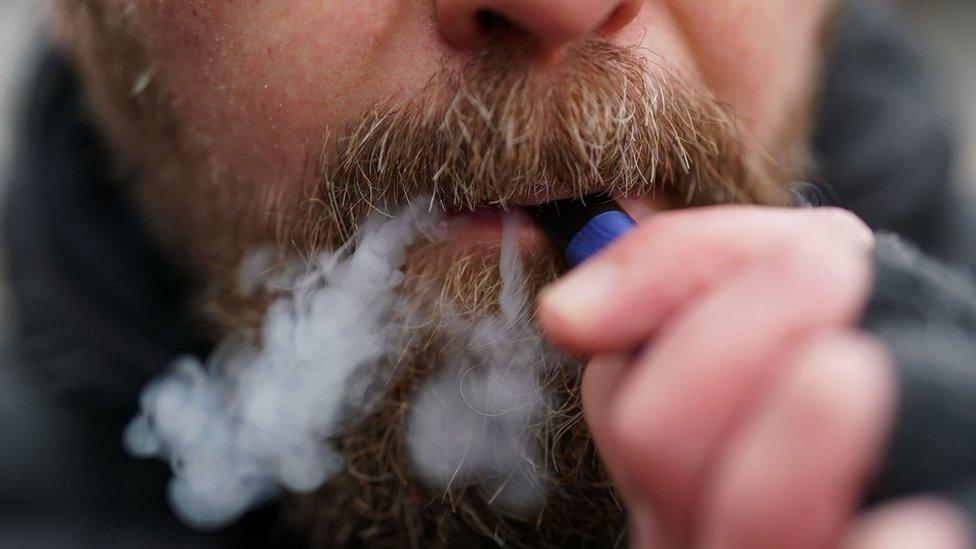
A new tax on vaping products will start in October 2026
Another announcement made by the chancellor, as he outlined the government's tax and spending plans, was a tax on vaping products to start in October 2026, following a consultation.
Brett Cundwell, from Triumph Vapes in Didcot, said he did not think it would have a major impact.
He said prices would "go up slightly" but called on the government "to licence vape shops and only allow vape shops to sell vape products" to better police underage vaping, or to stop non-smokers taking up vaping.
He said: "If they bring the tax in, then we will just manage with a tax on the vaping products.
"They're very much trying to put it in the same bracket as tobacco, which it's not, but as an industry we will deal with what they bring in."
Mr Hunt also said the existing tax on tobacco would increase, because,"vapes can also play a positive role in helping people quit smoking".
The one-off increase in tobacco duty would "maintain the financial incentive to choose vaping over smoking", he told Parliament.
The government's Spring Budget 2024 document also gives the "green light to the next section" of East West Rail, with services set to operate between Oxford and Bedford "by the end of the decade".
The railway line when completed will link Oxford and Cambridge via Bletchley, Milton Keynes and Bedford.

Follow BBC South on Facebook, external, X, external, or Instagram, external. Send your story ideas to south.newsonline@bbc.co.uk or via WhatsApp on 0808 100 2240, external.
Related topics
- Published7 March 2024
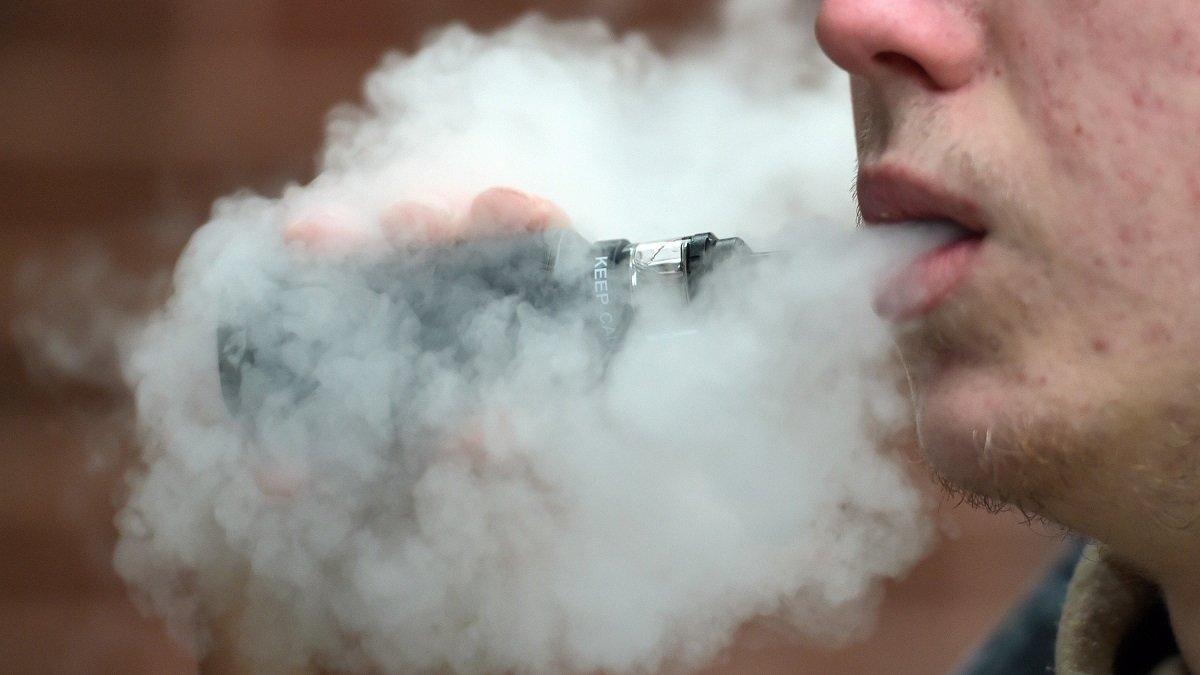
- Published6 March 2024
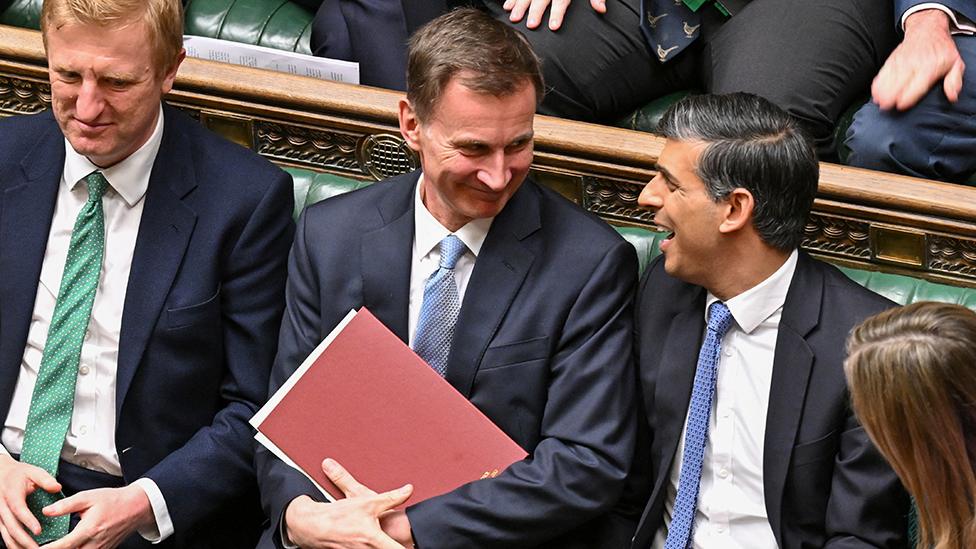
- Published4 March 2024
